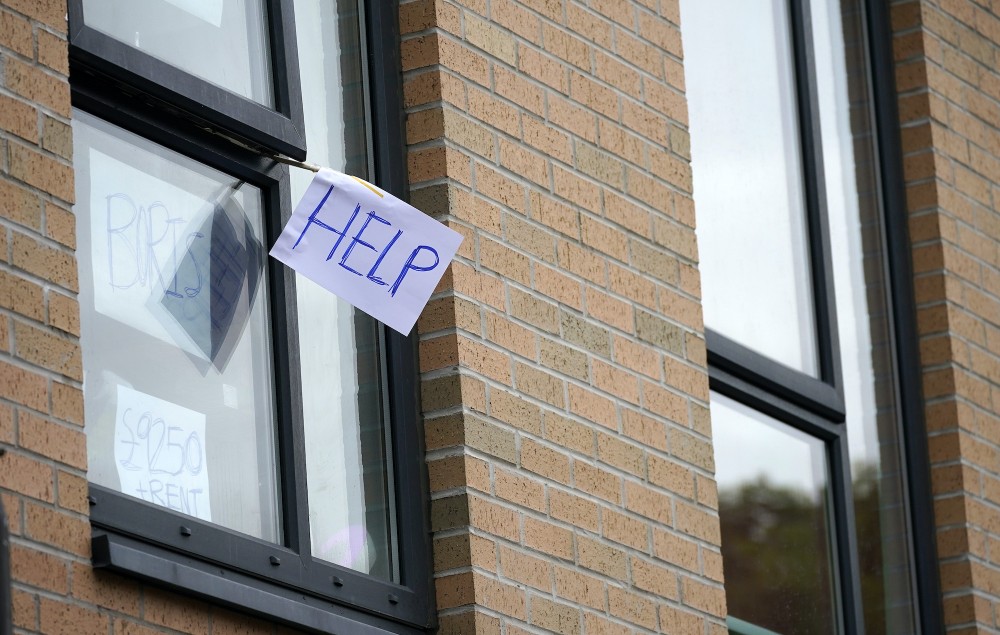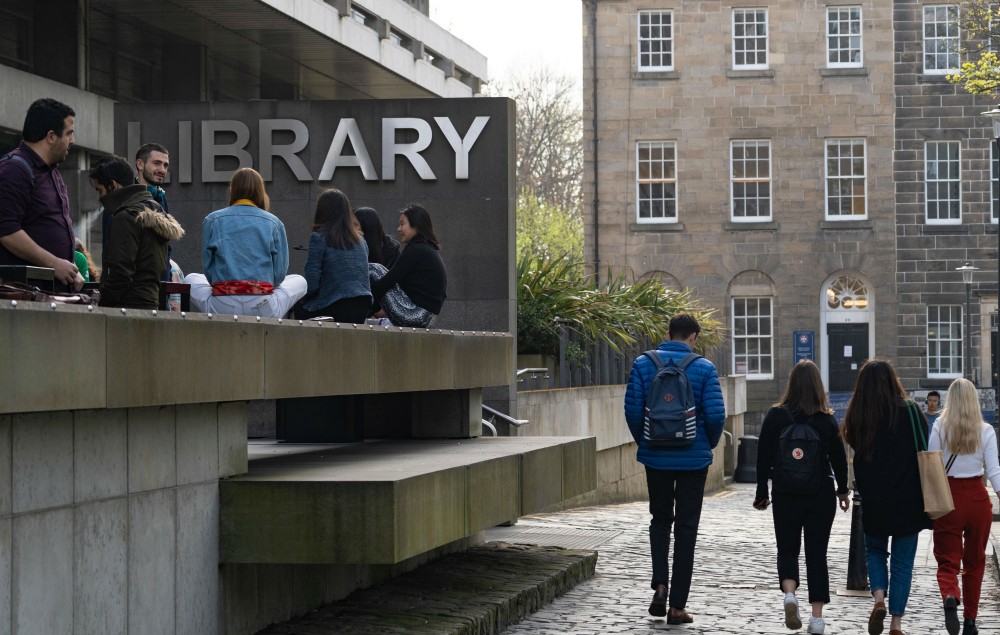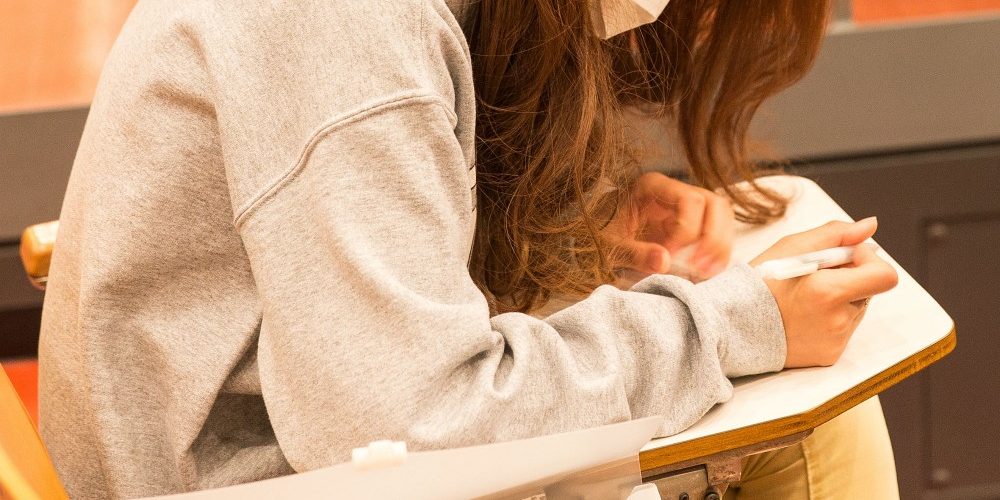Charity share mental health advice for students coping with coronavirus pandemic
Mental health charity Student Minds have shared advice for those who might be struggling to cope while at university during the ongoing coronavirus pandemic.
Last month, the NUS warned of a rise in student anxiety due to university COVID restrictions – following reports of thousands of UK university students forced into isolation and quarantine due to a rise in cases across the UK. Now, with schools, colleges and universities remaining open while the rest of the country is in a month-long lockdown, students are being encouraged to do all that they can to take care of their mental health in these difficult times.
“It’s a tough time for students around the country,” charity ambassador and mental health author Lucy Nichol told NME. “Starting uni as a fresher is one thing, but moving away from home amid the pandemic is quite another. However, this year it isn’t just first year students that are having to deal with uncertainty – returning students are heading back into a whole new world of study too. With online lectures, self-isolation measures in some universities and restrictions on socialising across the board, some students will feel the impact on their mental health.
“You don’t have to face this alone. Thanks to national student mental health charity, Student Minds, there are free resources and direct support available to all higher education students in England and Wales. This is through the mental health programme, Student Space.”

Student Space Psychoeducation Lead and Psychotherapist Gareth Hughes said that uncertainty was a major factor on the mental health of many, and encouraged students to make an action plan using the charity’s template to help manage it.
“It’s likely that we will be living with uncertainty for some time, so in learning to accept it we can reduce any stressful emotions that may arise because of it,” he said. “It’s also good to learn about what we do have control over, rather than focusing on what we don’t. Don’t set yourself unrealistic expectations – you’re bound to feel a bit up and down, so don’t be angry with yourself if you have a wobble from time to time! Student life is never perfect after all.”
Michael Priestly, a student at Durham University, spoke of the difficulty of making friends at university during a pandemic – pointing to Student Minds’ advice on the matter and dealing with loneliness.
“I found making friends at university a challenge before the pandemic,” he said. “Now, with many social events cancelled or moved online and the traditional social spaces at university closed, it can feel even harder to connect. Lots of people are in the same boat though, so now is the time to be proactive in connecting with others virtually.
“My university has put on lots of virtual social events which I have made a real effort to engage with. And I have been trying hard to reach out to those that I have contact with through my department to build connections. I have found lots of people have really appreciated a half-hour virtual coffee and catch-up. I have also been experimenting with lots of new apps to play games with friends online. it can feel unfamiliar and anxiety-inducing at first, but it has helped me feel connected to the university.”
Many universities have placed students into “social bubbles”. Student Minds’ Clinical Supervisor and CBT Therapist Alice Wilson, said that it might take time to feel comfortable together in these situations.
“Talk about it, work through any disagreements before they build up and discuss how you can get through it together,” she said. “Importantly, you don’t have to spend all of your time together – spend time in your room, on your own and call people virtually too. If you are struggling please do reach out to your university for support and advice.
Many students may also be struggling with the move towards online study. Eoin Kind, a PhD student, said that the experience was at first “lonely compared to the shared experience of being in a classroom with my friends and peers”, before finding ways to cope.
“My top tips are get a pen and paper, ask yourself what you want to get out of your next online session and take a break from the screen and go outside for 5-10 minute for a break between sessions,” said Eoin. “It is important to remember even though you may be studying by yourself or sitting in a room you are not in this experience alone.”
That said, students are also encouraged to ensure their digital wellbeing by not spending too much time on computers, with Student Space’s Student Space sharing their five tips for healthy digital habits. Gareth Hughes also shared: “We’re all pretty much glued to our screens at the moment, as our human interactions are tending to take place online. While online activity can be great for us in terms of engaging with others, too much of it can cause tiredness and irritability, as well as encourage procrastination.
“It’s a good idea, therefore, to be more mindful about how you use your screen time. Make sure you’re using it effectively – taking part in a lecture or chatting with friends. If you find yourself mindlessly scrolling through social feeds or flicking back and forth between apps with no real purpose it might be time to put the iPhone down and take a break.”

Student Minds added that focussing on nutrition was also important for mental health at a time like this, reminding students that a good diet can support healthy learning and reminding them to be cautious with caffeine, tea (including green tea), chocolate and fizzy drinks.
“Gut health can impact our mood, as can how often we eat and at what time of day,” said Psychoeducational Consultant & Therapist Jo Baker. “The key here is to make small changes rather than having a huge dietary transformation. Strike a balance – afford yourself a piece of cake every now and then. Just try not to overindulge on the things that make you, personally, feel anxious, down or stressed.”
Student Space offer free text support, a phone line, web-chat and email support. Text ‘STUDENT’ to 85258 to start a conversation today.
